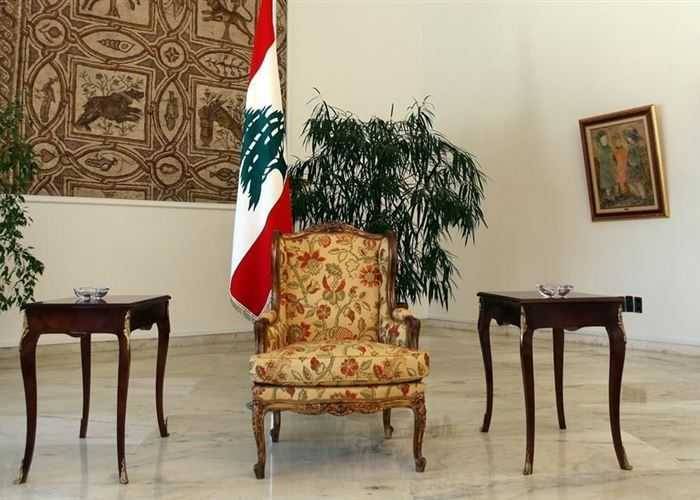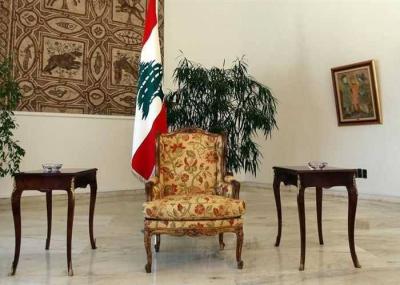A new stagnation phase awaits Lebanon starting this week until the anticipated return of the French presidential envoy Jean-Yves Le Drian. This phase will only be disrupted by the expected outcome of the dialogue taking place between "Hezbollah" and the "Free Patriotic Movement," determining whether the smoke will be white or black, which would dictate the next steps. In this context, there is information suggesting that Le Drian may postpone his visit from the first week of September to the third week, in order to allow room for efforts to soften the opposition’s stance on the dialogue and to facilitate the development of discussions between Haret Hreik and Mirna al-Chalouhi, potentially yielding an agreement that would help France with its presidential mission, as it desires.
On the other hand, most opposition forces maintain their fundamental position rejecting all forms of dialogue with the resistance team outside constitutional institutions, namely the Parliament. According to information from the electronic newspaper "Al-Anbaa," the "Lebanese Forces" will not participate in Le Drian’s dialogue if he summons it next September, and it will not respond to the questions posed by the French envoy a few days ago.
From this point, the atmosphere surrounding the French initiative and Le Drian does not seem positive, especially since the dialogue effort led by France faces rejection from the opposition internally, not just from the "Lebanese Forces." There is also a lack of enthusiasm from the international community regarding this effort, particularly from the countries of the Doha five-party agreement, including the United States, Saudi Arabia, Egypt, and Qatar, which are still committed to their statement emphasizing the need for democratic integrity in the electoral process.
The opposition focuses its core objectives on preventing any pro-resistance candidate from reaching the Baabda Palace. Thus, any potential agreement between Bassil and "Hezbollah" to support Frangieh would open the door for discussions within the opposition corridors on how to respond and whether they will resort to obstructing the quorum for sessions and their ability to do so, particularly as the "Hezbollah" and "Free Patriotic Movement" alliance could potentially secure 65 votes for Frangieh.
This is the local aspect; regarding the regional and international side, it is clear that no settlement has been reached yet concerning Lebanon specifically. The international effort has stalled since the Doha five-party meeting; the recent American-Iranian agreement is local and does not address regional issues but rather bilateral interests, and the Saudi-Iranian agreement is still in its early stages and faces many challenges that lead both parties to set aside Lebanon in favor of addressing their own concerns.
In a related context, opposition sources confirm their rejection of comprehensive dialogue with "Hezbollah" before holding presidential elections, emphasizing that "the constitutional process must be completed within institutional frameworks," indicating that Le Drian's efforts will hit a wall of refusal and may fail. In an interview with "Al-Anbaa" electronic newspaper, sources commented on Le Drian's message, noting that "the opposition supports the specifications of the Doha five-party statement, which was clear during its meeting with Le Drian, and we reiterate our rejection of any candidate affiliated with the resistance axis."
In conclusion, a complex domestic scene awaits without any signs of a breakthrough, as each team remains entrenched in its positions and refuses to make concessions for the public good. An extended period of stagnation is likely, which may be interrupted by some meetings and atmospheres, but without significant effectiveness. Therefore, regarding the presidency, according to "Asharq" newspaper, nothing is yet finalized concerning the return of French presidential envoy Jean-Yves Le Drian to Beirut. Although his visit was scheduled for early September, it seems he may delay it, especially given the lack of enthusiasm from parliamentary opposition forces for the dialogue he intends to call for. According to diplomatic sources, Le Drian is currently reviewing his options and strategies with French decision-making circles, and he is also conducting a series of discreet communications with the international five-party group monitoring the Lebanese file to determine the appropriate course of action, particularly as his non-return to Lebanon would mean the end of the French mediation. He is currently exploring the best approaches to avoid another failure in his presidential conciliatory endeavor.




